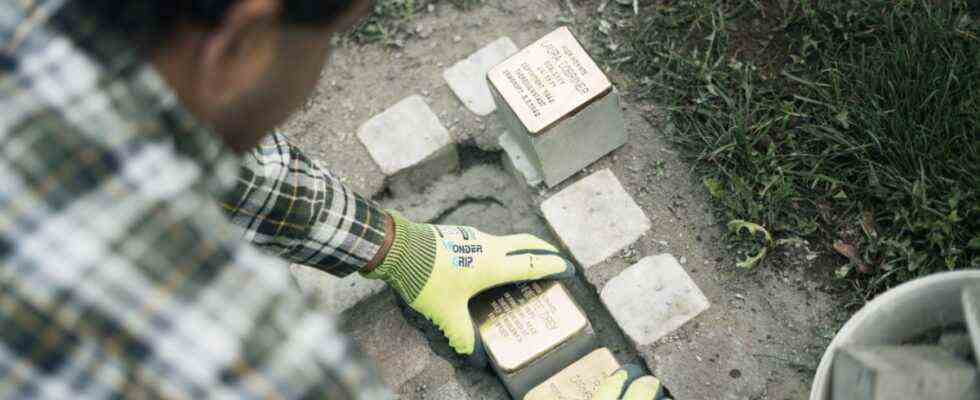In Rosenheim, Upper Bavaria, there will still be no stumbling blocks on public land commemorating the victims of the Nazi era. The city council decided on Wednesday evening with a slim majority of 23 to 19 votes and thus rejected a request from 16 city councilors from six different political groups. The CSU, the largest parliamentary group, as well as Lord Mayor Andreas March and the city administration had spoken out against stumbling blocks, such as the artist Gunter Demnig has now laid in more than 80 cities and communities in Bavaria and more than 1800 communities in half of Europe, in order to To commemorate the victims directly at their place of residence or work.
One does not want to offend parts of the Jewish community, it said in the Rosenheim debate by Mayor March and his CSU. You are referring above all to the President of the Jewish community in Munich and Upper Bavaria, Charlotte Knobloch. In the worst case, this sees the names of the victims trampled on such stumbling blocks embedded in the ground and has also shaped the discussion in the state capital Munich with this argument.
Despite its majority No to the stumbling blocks, the Rosenheim city council now wants to get serious about a public and named commemoration of the victims of National Socialism, as it decided in principle seven years ago. The exact form in which this is to take place and how strongly Rosenheim will orientate itself on Munich and the metal steles there should be determined by the end of June at the latest. The city is also examining the possibility of creating an additional central memorial site. The Rosenheim “Initiative Memory Culture”, which has been very committed to stumbling blocks in recent years and has already organized a few transfers to private property, sees all this as a success of their work in an initial reaction.
Meanwhile, Gunter Demnig himself is defending himself against statements from the Rosenheim CSU that the stumbling blocks may be due to “a pronounced profit-oriented commercial interest on the part of the artist”. He works for a charitable foundation and, like everyone else who works there, receives an average salary, emphasizes Demnig. He regrets the city council’s decision not to allow stumbling blocks on public land. From his point of view it would have been possible to leave the type of commemoration to the relatives and descendants of the individual victims.

